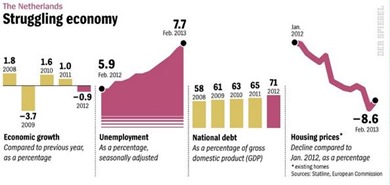 Today was my cleaning day in the shared spaces outside the Lilac Room. I know this because the girls in the house have created a schedule, posted it with the areas to be cleaned, the means for doing so, and names of those responsible, a month at a time.
Today was my cleaning day in the shared spaces outside the Lilac Room. I know this because the girls in the house have created a schedule, posted it with the areas to be cleaned, the means for doing so, and names of those responsible, a month at a time.
Actually, last weekend was my day. But I was away and my absence was duly noted, scrawled as tsk-banter on the empty column of boxes that I should have checked. I changed the date and was up early,  a couple of hours got things clean top to bottom.
a couple of hours got things clean top to bottom.
There was a time that I would not have done as much. If I paid the bills, I could rationalize that my time was better spent working, earning, and that it was fair that others do (most of) the cleaning.
I’m not a messy person, so the burden of vacuuming, washing, kitchens and bathrooms seemed like a small burden.
Besides, nobody has ever been happy with the quality of my bathroom cleaning.
Cleaning the sinks, I reflected on how immature and dated this felt. There’s no reason not to pitch in with the work, and its demeaning to toss money over the transom at an equal partner.
And I realized that I was wading into a larger think about the proper roles of Capital and Labor.
I’ve been listening a discussion on BBC Analysis of Hall and Soskice’s book Varieties of Capitalism. They describe two forms of capitalism. Liberal Market Economies, in the US / UK style, use management hierarchies and competitive markets to determine businesses activities. Coordinated Market Economies, like Germany and Sweden, rely on non-market relationships with labor, governments, and banks to coordinate business activities.
It’s like the political hard power / soft power dichotomy, but applied to corporate operations.
And each model has advantages: in boom times, markets thrive; in downturns, relationships count.
My intuition about investor/management/labor partnerships puts me squarely in the Coordinated camp.
My business needs both investors who put in money, and contractors and employees who complete the tasks. My home requires income to pay for housing and goods, and work to complete the tasks of everyday living.
In my businesses, in my home, I appreciate the need and the worth of both contributions: they have equal footing in assuring our success.
But I have to say that the theory doesn’t work well in practice.
The folks who invest in me want things done twice as fast as I am able, while the people who I count on to get things done move half as fast as I need, I commented to a friend.
That’s because the owners of the business have more incentive than the people without ownership, he suggested,
It’s likely true: the perceived risks and rewards skew much more towards those who provide capital than to those who provide labor.
 Still, there’s a real sense that those who work for the business, who know the most about it, and who build it alongside everyone else have an equal claim on it’s success. A fair distribution of success would reward both hard- and ‘sweat-’ equity.
Still, there’s a real sense that those who work for the business, who know the most about it, and who build it alongside everyone else have an equal claim on it’s success. A fair distribution of success would reward both hard- and ‘sweat-’ equity.
I try to strike a balance, cooperatively building good relationships and implementing shared rewards, while understanding that management and market realities are driven by economic power and zero-sum resourcing. The blend seems possible: I’ve seen it work well with Work Council participation alongside management in the Netherlands.
Leaning on my mop, I looked across my spotlessly clean floor. ‘A good morning’s work.
In the past, a logical partnership of paying the mortgage/rent and of cleaning/ maintaining the premises seemed fair and efficient (for example, if we both did our part, we could kick back together on weekends).
These days, with income and assistance both in short supply, I happily fill both roles, and will likely never go back to the old ways.
It’s good to be capable; it’s good to be humble.











